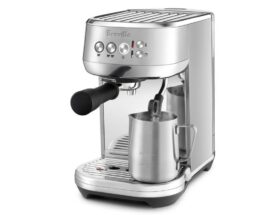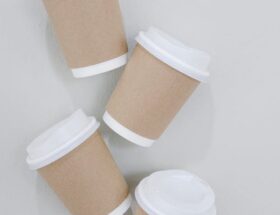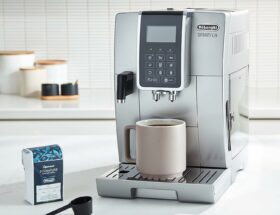
Why Does My Coffee Taste Metallic? Solutions and Causes
If you are a coffee lover, you might have experienced a strange metallic taste in your brew at some point. It can be quite jarring and may leave you wondering what could be causing this unpleasant flavor. This blog post aims to shed light on the potential reasons behind this metallic taste in your coffee and provide practical solutions to rectify it. We will delve into a variety of factors including water quality, brewing methods, and coffee bean type, equipping you with the knowledge to enhance your coffee’s flavor, troubleshoot any taste issues, and experiment with different brewing techniques.
Table of Contents
The Scourge of the Metallic Coffee Taste
Do you find yourself constantly disgruntled by the metallic taste that plagues your morning brew? The unpleasant tang can ruin your day and leave you struggling to savor your favorite beverage. Fear not, for we have delved into the potential causes behind this metallic taste and gathered practical solutions to help you rectify it.
1. Water Quality: The Culprit Within
One of the primary contributors to a metallic taste in coffee is water with high mineral content. Minerals such as iron, manganese, or copper can seep into the water, ultimately affecting the taste of your precious brew. To ensure a cleaner and more enjoyable result, consider investing in a water filter or using bottled water specifically labeled as low in mineral content.
2. Brewing Methods: The Art of Extraction
The method by which you brew your coffee can greatly impact its flavor. If you notice a metallic taste, it may be time to reassess your brewing technique. Avoid using excessively hot water, as it can cause over-extraction, leading to a bitter taste. Instead, opt for water just below boiling point (around 195-205°F) to strike the right balance between flavor extraction and taste palate.
Furthermore, ensure you are using clean equipment when brewing your coffee. Residual oils or old coffee grounds can add an unwanted metallic flavor. Regularly clean your coffee maker, French press, or espresso machine with a gentle soap and water solution to prevent any lingering tastes from tainting your brew.
3. Coffee Bean Type: The Flavor Spectrum
The type of coffee beans you choose can also contribute to a metallic taste. If you notice a consistent metallic flavor, experiment with different coffee bean varieties. Opt for beans with lower acidity, as they tend to have a smoother and less tangy taste. Additionally, try selecting beans from different regions to diversify the flavor profile and find one that suits your taste buds.
4. Troubleshooting with Trial and Error
If the metallic taste persists despite addressing the above factors, it might be time for some troubleshooting. Try adjusting your brewing time or altering the coffee-to-water ratio. Experiment with different grind sizes to achieve a balanced extraction. Additionally, consider consulting with a barista or coffee expert who can provide personalized guidance based on your specific brewing equipment and coffee preferences.
To combat the metallic taste in your coffee, start by addressing the quality of your water. High mineral content can lead to the undesirable tang. Opt for filtered or low-mineral bottled water for a cleaner brew.
Experiment and Enjoy the Journey of Coffee Brewing
Enhancing your coffee’s flavor is a continual process of exploration and refinement. By understanding the potential causes of a metallic taste and implementing the suggested solutions, you can take control of your coffee experience. Remember to prioritize water quality, experiment with different brewing methods, explore various coffee bean types, and confidently troubleshoot any lingering taste issues. With these tools in hand, you are well on your way to enjoying a consistently flavorful, satisfying cup of coffee.
Step by Step Guide: Improving Your Coffee Flavor and Troubleshooting Metallic Taste
Step 1: Assess Water Quality
Start by evaluating the quality of water you use to brew your coffee. Water impurities can often be the primary culprit behind a metallic taste. Here’s what you can do:
- Use filtered or bottled water instead of tap water. Tap water can contain chemicals, minerals, or impurities that affect the taste of your coffee.
- Invest in a water filtration system specifically designed for coffee brewing. This will ensure your water is free from any unwanted flavors or odors.
Step 2: Consider Brewing Method
The brewing method you choose can significantly impact the taste of your coffee. Experiment with different techniques to find the best one for you:
- Try a pour-over method like Chemex or V60. These methods allow for better control over water temperature and extraction, resulting in a cleaner, more flavorful cup.
- Explore the world of espresso brewing. Espresso machines have precise temperature and pressure control, giving you the ability to extract the best flavors from your coffee beans.
- Opt for a French press. This brewing method produces a full-bodied coffee with a rich flavor profile.
Step 3: Evaluate Coffee Beans
The type and quality of coffee beans you choose play a vital role in the taste of your coffee. Consider these suggestions:
- Opt for freshly roasted coffee beans. Stale beans can result in subpar flavor and potentially metallic tastes.
- Experiment with different coffee bean origins. Beans from different regions offer unique flavor profiles, allowing you to find your preference.
- Consider single-origin coffees. These beans provide a distinct and clear taste, helping to eliminate any unwanted metallic notes.
Step 4: Clean Your Equipment Regularly
Buildup and residue on your coffee equipment can contribute to off-flavors, including metallic tastes. Here are some cleaning tips:
- Regularly clean your coffee machine and accessories following the manufacturer’s instructions.
- Use a descaling solution to remove mineral deposits that can affect the taste of your coffee.
- Ensure your coffee grinder is clean and free from old coffee residue.
Step 5: Temperature and Brew Time
The temperature and brew time can greatly influence the taste of your coffee. Consider the following:
- Ensure you’re brewing your coffee at the proper temperature. Use a thermometer if necessary to achieve the ideal temperature range for your brewing method.
- Experiment with different brew times. Under-extraction or over-extraction can result in off-flavors, including metallic tastes. Adjust your brewing time to find the sweet spot.
Step 6: Consult a Professional
If you’ve tried all the above steps and still can’t seem to eliminate the metallic taste in your coffee, consider reaching out to a professional coffee expert or barista. They can provide personalized advice and troubleshooting tips based on your specific situation.
Pay close attention to your brewing technique—using slightly cooled water (195-205°F) prevents over-extraction and bitterness.
By following these steps and making adjustments along the way, you’ll be well on your way to brewing a delicious, flavorful cup of coffee without any unpleasant metallic tastes. Remember, coffee brewing is an art, and with a little practice and experimentation, you’ll discover the perfect balance for your taste buds!
Wrap Up
Coffee is a beloved beverage enjoyed by millions around the world, but it can sometimes have a metallic taste that puts a damper on the experience. In this blog post, we’ve explored the potential causes of a metallic taste in coffee and provided practical solutions to rectify it.
One of the main culprits of a metallic taste is the quality of the water used in the brewing process. Hard water with high mineral content can leave behind a metallic residue. Using filtered or bottled water can help improve the taste of your coffee.
The brewing method you choose can also have an impact on the flavor of your coffee. Experimenting with different brewing techniques such as pour-over, French press, or espresso can help you find the method that brings out the best flavors in your beans.
We hope this blog post has equipped you with the knowledge and solutions to enhance your coffee’s flavor and troubleshoot any taste issues you may encounter. If you have any questions or have found other strategies to combat a metallic taste in coffee, we’d love to hear from you. Leave us a comment below and let’s continue the conversation!
For more coffee-related content, check out these helpful resources:
- How to Vietnamese Coffee: The Strong, Bold Coffee
- How to Hario V60: The Ultimate Guide to Making Perfect Coffee
- How to Siphon Coffee: The Slow and Elegant Way to Brew a Perfect Cup
Thank you for reading, and happy brewing!









